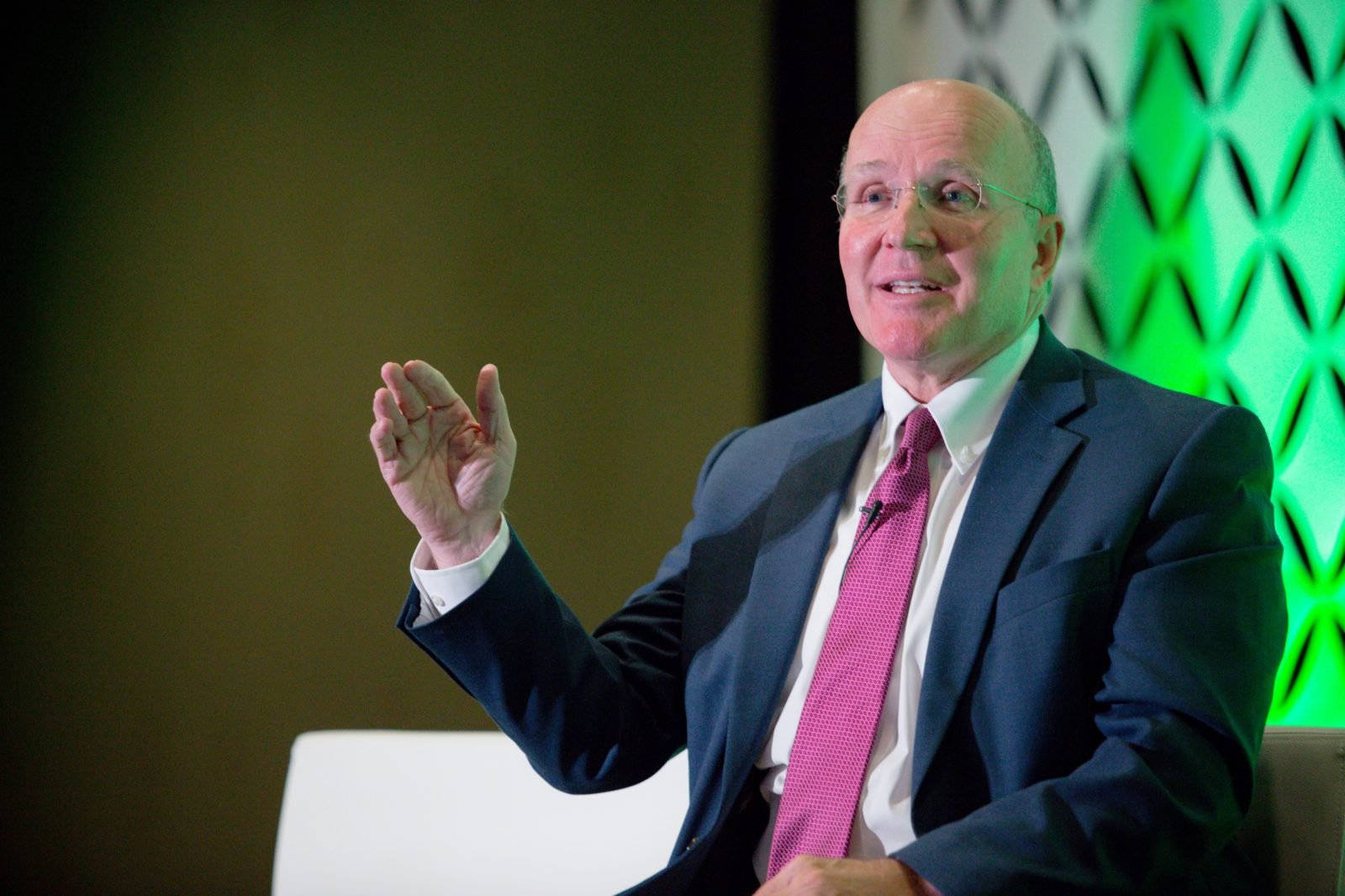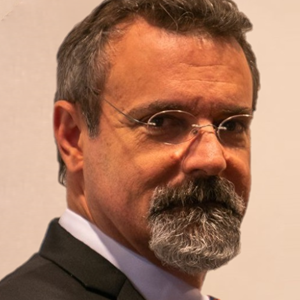“It is not from the benevolence of the butcher, the brewer, or the baker that we expect our dinner, but from their regard to their own interest.”
But what about fraud, shoddy, unsafe products and services? Or asymmetric information—is your doctor a Quack, or how do I know the used car I’m buying isn’t a lemon?
The criticisms of the invisible hand are valid. The question is: whether the government regulation cure is worse than the disease?
Listen to Episode #294 with Adam Thierer for our discussion on Evasive Entrepreneurs and Permissionless Innovation vs. the Precautionary Principle, an important concept in discussions around regulation.
The original meaning of regulation was to make regular; to standardize; to develop a standard under which nothing should fall. The industry being regulated loves regulation.
The law bubbles up from the bottom, a natural law—the norms to which all of us agree. But legislation is an imposition from the top down, it’s arbitrary (why 55MPH speed limit and not 60MPH?).
It’s similar with our topic today. Reputation is bottom-up, and regulation is top-down.
HISTORY OF REGULATION
This section draws from Milton and Rose Friedman’s classic book, Free to Choose: A Personal Statement.
A lot of regulation has been prompted by some event, such as Rachel Carson’s Silent Spring, Upton Sinclair’s The Jungle, Senator Estes Kefauver’s investigation into the drug industry, and Ralph Nader’s attack on the General Motor’s Corvair as “unsafe at any speed.”
Regulation quickened after the New Deal—half of the 32 agencies in in 1966 created after FDR’s election in 1932. Twenty-one new agencies were established from 1966 into the next decade.
Instead of being concerned with specific industries, these new agencies covered the waterfront: the environment, the production and distribution of energy, product safety, occupational safety, etc., with the goal of not only protecting the consumer from sellers but also from himself.
The Code of Federal Regulations in 1938 was 18,193 pages. In 2017, 186,374 pages. Edward Teller, “It took us eighteen months to build the first nuclear power generator; it now takes twelve years; that’s progress.”
The Interstate Commerce Commission was established Feb 4, 1887 to regulate railroads, because of fears of monopolization. The artificial high prices enabled the trucking industry to grow and The Motor Carrier Act of 1935 gave the ICC jurisdiction over trucking to protect railroads, not consumers.
Truckers needed “Certificates of public convenience,” 89,000 applications were filed while only 27,000 were approved. The collective value of these Certificates in 1972 was $2-3 Billion, which also represents the economic loss to society
The ICC then went on to nationalize passenger traffic with Amtrak.
The Sherman Anti-Trust Act was passed in 1990. Listen to Episode #164.
The Food and Drug Administration was established in 1906, as a reaction to Upton Sinclair’s novel, The Jungle, which documented unsanitary conditions in Chicago slaughtering and meat-packing houses. Sinclair said, “I aimed at the public’s heart and by accident hit it in the stomach.”
Even before The Jungle, Women’s Christian Temperance Union and the National Temperance Society formed the National Pure Food and Drug Congress (1898) campaign for legislation to eliminate medical nostrums—heavily laced with alcohol.
The 1906 act was limited to the inspection of foods and labeling of patent medicines. More by accident than design, it also subjected prescription drugs to control, a power which was not used until much later. The FDA was placed in the Department of Agriculture.
Concerned by restrictions on importation of U.S. meats imposed by European countries, due to the allegation that the meat was diseased. Meat sellers eagerly seized on government certifying meat was disease-free.
The Food, Drug, and Cosmetic Act of 1938, extended the government’s control over advertising and labeling and required all new drugs to be approved for safety by the FDA. The approval had to be granted or withheld within 180 days.
Then the Thalidomide episode of 1961–62 swept into law in 1962 the Kefauver amendments, which dealt more with quality than price . These amendments added proof-of-efficacy requirement to the proof-of-safety requirement of the 1938 law, and removed the time constraint on the FDA’s disposition of a New Drug Application.
Subsequently, the number of “new chemical entities” introduced each year fell more than 50 percent since 1962. Ten years after the 1962 amendments, no drug was approved for hypertension, whereas several were approved in Britain. In fact, in the entire cardiovascular area, only one drug was approved in the five year period from ’67 to ’72.
Economist Sam Peltzman’s research into the costs and benefits of the FDA was unambiguous: “The harm done has greatly outweighed the good.”
Fame and acclaim was awarded to the woman who held up approval of Thalidomide, Dr. Frances O. Kelsey, was given a gold medal for Distinguished Government Service by John F. Kennedy. Any doubt which mistake you will be more anxious to avoid?
In a Newsweek column from January 8, 1973, Milton Friedman laid out that for these reasons the FDA should be abolished,
A letter writer challenged him: “I do not believe that the FDA should be abolished but I do believe that its power should be” changed in such and such a way.
In a subsequent column, entitled “Barking Cats,” February 19, 1973, Friedman replied:
What would you think of someone who said, “I would like to have a cat provided it barked”? You favor an FDA provided it behaves as you believe desirable is precisely equivalent.
As a natural scientist, you recognize that you cannot assign characteristics at will to chemical and biological entities, cannot demand that cats bark or water burn.
Why do you suppose the situation is different in the social sciences?
Here is “Barking Cats” by Milton Friedman and his response to a previous column in which he more or less argued for the FDA to be abolished.
Also related to today’s show, check out Episode #192 with Mary Ruwart in which we discuss her book, “Death by Regulation.”
Interested in learning more about the futility of the US FDA and the bureaucratic delays we have seen with the vaccine for COVID-19? Here is yet ANOTHER great show featuring Mary Ruwart, Episode #321.
Economist Steven Landsburg suggest that we should pay the FDA Director should be paid in Pharma stock.
The Civil Aeronautics Board was established in 1938, with control over 19 domestic carriers. Intrastate fares were not regulated while interstate fares were. The intrastate flight in California from San Francisco to Los Angeles was cheaper than similar length interstate flights.
Ralph Nader filed a complaint in 1971 about this discrepancy. So the CAB increased the intrastate fares to match the permitted interstate CAB fares. How does this protect the consumer?
The National Highway Traffic Safety Administration was established December 31, 1970. It’s research into the infamous Corvair found, “The 1960–63 Corvair compared favorably with the other contemporary vehicles used in the tests.”
The Consumer Product Safety Commission was established October 24, 1972. This has to be the most Namby-pamby, eat your vegetables agencies ever founded. It’s main concern is not price or cost, but safety.
What is an “Unreasonable risk?” It is hardly a scientific term capable of objective specification. What decibel level of noise from a cap gun is an “unreasonable risk” to a child’s (or adult’s) hearing?
The example of Tris is illustrative of government failure. CPSC had responsibility for administering the “Flammable Fabrics Act,” dating back to 1953. CPSC issued regulations for children’s sleepwear and the cheapest way meet this standard was impregnating the cloth with a flame-retardant chemical—Tris. Soon, 99 percent children’s sleepwear produced and sold was covered in Tris. Later it was discovered that Tris was a potent carcinogen.
In a free market, Tris would have been introduced gradually. As Milton Friedman writes, “Often simply substituted government failure for market failure.”
The Environmental Protection Agency was Established December 2, 1970. While pollution is usually blamed on “business,” as Milton Friedman points out, “In fact, the people responsible are consumers, not producers, since they create a demand for pollution.”
He was in favor of imposing effluent charges, a tax of a specified amount per unit of effluent discharged. Then there would be objective evidence of the costs of reducing pollution.
Even if a high tax left much discharge, it would provide substantial sums to compensate the losers or undo the damage.
Price Controls are another form of regulation. President Carter argued for a massive program to produce synthetic fuels or else the nation would run out of energy by 1990.
Yet enterprises have to be confident that future prices will not be controlled, otherwise, the heads-you-win, tails-I-lose gamble will not be worthwhile. When price rises, controls and “windfall taxes” loom; but when price falls, they hold the bag.
To those who argue that the risks are too great and the capital costs too heavy for the market to absorb, they are wrong. Risk taking is the essence of private enterprise. Risks are not eliminated by imposing them on taxpayer. The Alaska pipeline, driverless cars, AI, satellites, and billionaires in space all demonstrate that private markets can raise massive sums for promising projects.
Economist George Stigler’s Thought Experiment
University of Chicago economists George Stigler was the originator of the Regulatory Capture Theory. Here’s his thought experiment:
“Suppose you want to figure out why a particular regulation passes and the way that it’s written.
“Imagine the legislature putting that regulation up for auction and people could bid on the terms of the regulation and the outcome went to the highest bidder.
“Under those rules it would be clear whose interest is served by a government restriction on freedom of exchange.”
Economist Ronald Coase asked why we don’t regulate ideas to the same extent we regulate products and services, since ideas have killed more people than products and services. After all, Marx’s and Hitler’s ideas have killed more than shoddy products.
REPUTATION: HOW THE MARKET REGULATES BEHAVIOR AND PROTECTS THE CONSUMER
This section draws from Howard Baetjer, Jr.’s wonderful book, Free Our Markets: A Citizens’ Guide to Essential Economics.
Thomas Sowell once said, “I don’t have faith in free markets; I have evidence.”
The elements of regulation by market forces are:
Freedom among providers to enter the market and compete for buyers
Freedom of buyers to take their business where they will
Reputation of sellers, and customer experience spread by word-of-mouth/mouse
Middleman, the Department Store
Brand name—the value of which exceeds most assets of modern companies
Tort liability, a legal means by which people can recover damages if they are harmed
Requirements imposed by insurance companies as conditions of insurance
Trial and error feedback loop
Private testing organizations—Consumer Research 1928, Consumers Union 1935 publishes Consumer Reports (small size indicates minority of consumers are willing to pay, which shows they are satisfied with most sellers)
Third-party certification of product quality and service competence (mechanics can be ASE certified—Automotive Service Excellence—or manufactured certified)
California growers formed Leafy Green Products Handler Marketing Agreement which pays for their own inspection system. The growers found the FDA regulation to be ineffective and insufficient. Participation was voluntary in California, yet 95%+ of the leafy greens industry signed up after major processors like Dole and Fresh Express agreed to participate.
Insurance companies have a strong incentive to regulate and insure the safety of products. So much so that it was insurance companies who created perhaps the largest third-party certifier, Underwriters Laboratories (UL) (“Underwriter” means “insurer” in this context).
This international organization “evaluates more than 19,000 types of products, components, materials and systems annually with 20 billion UL Marks appearing on 72,000 manufacturers’ products each year.”
If the law permits only one certifier to operate society loses the dynamic process through which better standards and methods can be discovered and used.
Every approach will have flaws. Our goal should be the more modest one of achieving the least-flawed institutional setting. The least-flawed, best available approach to regulation is one that:
generates an on-going discovery of new and better knowledge and invention of new and better processes, and
gives those involved a strong incentive to create value for other people in order to benefit themselves.
Parents can’t take time research different grocery store chains, shoes they might buy, or the different churches they might attend. Yet they have only pretty good grocery stores, shoes, and church options to choose from.
Why? Because in a free and competitive system enough other people do such research and do make such informed choices. If only half of all parents made careful school selections in a free system, no poor schools could survive.
No lobbyist for a newspaper chain or a religion goes to Washington to insist that any new newspaper or religion must first get a license assuring the quality of their news or doctrine.
Milton Friedman writes: “Ask yourself what products are currently least satisfactory and shown least improvement: Postal service, elementary and secondary schooling, railroad passenger transport. Which have shown the most satisfactory and improved the most: Household appliances, television and radio sets, computers, supermarkets shopping.”
“The imperfect market may, after all, do as well or better than the imperfect government. The difference is that a private firm that makes a serious blunder may go out of business. A government agency is likely to get a bigger budget. The most effective protection is free competition at home and free trade throughout the world.”
Bonus Content is Available As Well
Did you know that each week after our live show, Ron and Ed take to the microphone for a bonus show? Typically, this bonus show is an extension of the live show topic (sometimes even with the same guest) and a few other pieces of news, current events, or things that have caught our attention.
This past week was Bonus Episode 355 - “Mask mania and more”. Here are a few links discussed:
The Extinction Clock - Thanks, Hector!
Do Box Office Numbers Even Matter Anymore? Talking Suicide Squad with Nick Cherrier | Subscribed.com
Supreme Court Blocks Biden Administration’s New Eviction Moratorium - WSJ
Why Most of the Pro-Mask Science Quoted in the Media is Absurd
Click the “FANATIC” image to learn more about pricing and member benefits.












